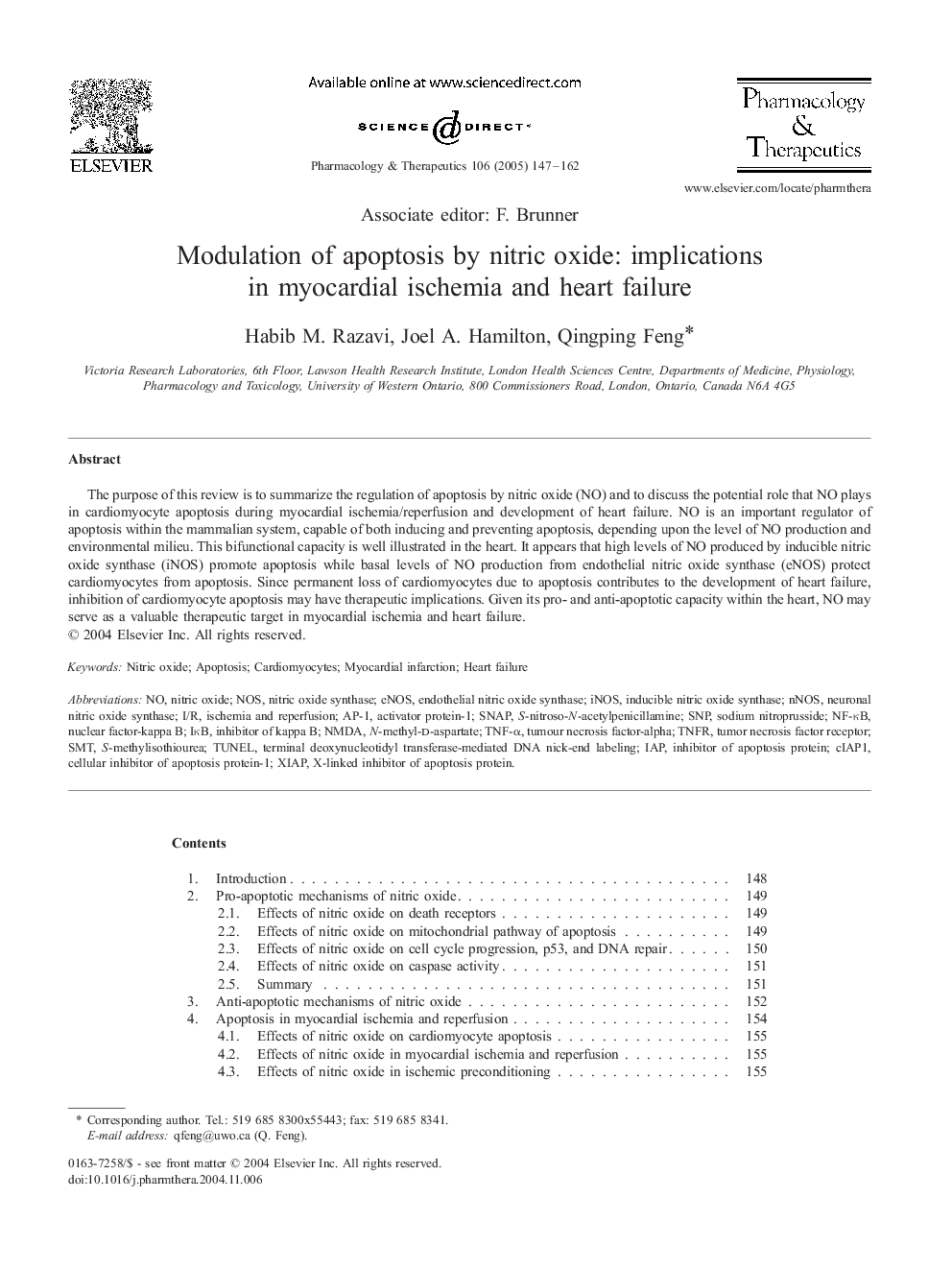| Article ID | Journal | Published Year | Pages | File Type |
|---|---|---|---|---|
| 9015893 | Pharmacology & Therapeutics | 2005 | 16 Pages |
Abstract
The purpose of this review is to summarize the regulation of apoptosis by nitric oxide (NO) and to discuss the potential role that NO plays in cardiomyocyte apoptosis during myocardial ischemia/reperfusion and development of heart failure. NO is an important regulator of apoptosis within the mammalian system, capable of both inducing and preventing apoptosis, depending upon the level of NO production and environmental milieu. This bifunctional capacity is well illustrated in the heart. It appears that high levels of NO produced by inducible nitric oxide synthase (iNOS) promote apoptosis while basal levels of NO production from endothelial nitric oxide synthase (eNOS) protect cardiomyocytes from apoptosis. Since permanent loss of cardiomyocytes due to apoptosis contributes to the development of heart failure, inhibition of cardiomyocyte apoptosis may have therapeutic implications. Given its pro- and anti-apoptotic capacity within the heart, NO may serve as a valuable therapeutic target in myocardial ischemia and heart failure.
Keywords
AP-1cellular inhibitor of apoptosis protein-1S-nitroso-N-acetylpenicillaminecIAP1XIAPTNFRIAPnNOSN-methyl-d-aspartateNMDASMTIκBiNOSNF-κBNOSeNOSI/RS-methylisothioureaMyocardial infarctionischemia and reperfusiontumour necrosis factor-alphaTUNELApoptosisinducible nitric oxide synthaseendothelial nitric oxide synthaseneuronal nitric oxide synthaseSNAPTNF-αNuclear factor-kappa BCardiomyocytesinhibitor of apoptosis proteininhibitor of kappa Bheart failuresodium nitroprussideNitric oxidenitric oxide synthaseX-linked Inhibitor of Apoptosis Proteinactivator protein-1SNPtumor necrosis factor receptor
Related Topics
Health Sciences
Pharmacology, Toxicology and Pharmaceutical Science
Pharmacology
Authors
Habib M. Razavi, Joel A. Hamilton, Qingping Feng,
